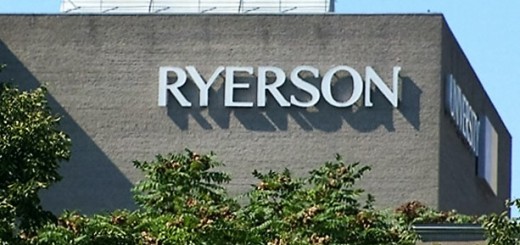Copyright Lawsuit Demonstrates CBC-CPC Rocky Relationship Transcends Harper-Era

The door-knocking, the lawn signs, the attack ads and the opportunistic photo-ops have drawn to a close for another election term as Canada looks to a Liberal minority government. Even though the political dust has settled, a legal action between Canada’s national broadcaster and one of the major political parties is in full swing.
As the 2019 federal election campaign hit its home stretch, the Canadian Broadcasting Corporation (“CBC”) filed a lawsuit (“CBC application”) on October 12, 2019 against the Conservative Party of Canada (“Conservative Party”). The application seeks a declaration, among other things, from the Conservative Party (and affiliates) that the parties engaged in unauthorized use of copyrighted material. This claim is a response to a series of online uses of CBC news and broadcasting footage both in tweets and an online campaign video released by the Conservative Party.
The claim also seeks a declaration from these parties that the moral rights of select CBC journalists, Rosemary Barton and John Paul Tasker, have been violated. Since the initial court filing, however, the CBC has released a statement saying that it will file an amendment to remove the two journalists from the suit.
Facts
Weeks before election day, the Conservative Party released a campaign video. The video was 1:46 minutes long and included a compilation of short news clips featuring Prime Minister Justin Trudeau and one-liners from various broadcasters covering a range of topics including the SNC-Lavalin controversy, payouts to Loblaws and Omar Khadr, and the government’s deficit. The video included four clips from CBC news, two of which contained the CBC logo and graphics. The clips together totaled about 20 seconds. The video was available for viewing on one of CPC’s websites, as well as its Facebook and YouTube page, before being removed about six days later. The video can still be found online through other sources, including here.
The CBC claims copyright infringement on footage from the English Leaders’ Debate, broadcasted, produced and moderated by CBC. The Conservative Party tweeted a series of video clips including excerpts of CPC Leader Andrew Scheer’s responses to various questions as well as exchanges between Scheer and other leaders. The tweets were removed a few days later.
The application also claims moral rights infringement under the Copyright Act [R.S.C. 1985, c. C-42, s.14], on behalf of applicants Rosemary Barton and John Tasker. Section 14 of the Act, provides the author of a work the right to the integrity of such work. This right is infringed if the work is “distorted, mutilated, or otherwise modified” or “used in association with a product, service, cause or association” to the prejudice of the author’s honour or reputation. (Copyright Act, s.28.2(1)). The CBC claims that the Conservative Party’s conduct has risked and harmed the reputation of the named journalists. (CBC application, para 53).
However, days after the application was filed, CBC released a statement explaining that the application will be amended, and the two applicants removed. It is not clear whether the amended application still includes the moral right infringement claim. If the CBC removed both Rosemary Barton and Tasker as applicants in the matter, the suit would have to replace another journalist as author in order to move forward with a claim under s.14 of the Copyright Act. A corporate employer of an author – in this instance, a journalist – cannot acquire the moral rights of an individual.[1] Only in rare circumstances can an author under the Copyright Act be an employer[2], but this discussion is outside the scope of the issue explored here.
The remedies sought by the CBC for the listed infringement includes a declaration of infringement from the Conservative Party and its affiliates named in the application, and a permanent injunction affecting prior and future use of CBC copyright-protected material.
Copyright Infringement
Fair Dealing
The CBC claims that the CPC’s use of this copyright-protected material diminishes its reputation and “takes advantage of their respected integrity and independence in a way that undermines public confidence in Canada’s national public broadcaster at a critical time” (CBC application, para 43). The CBC also claims that by using the material in the way it did, the Conservative Party had a damaging effect on the CBC and its journalists, citing its responsibilities under the Broadcasting Act, specifically its obligation to provide “fair and balanced reporting on matters of public interest” (CBC application, para 39).
There is no question that the CBC owns the copyrighted material used by the Conservative Party and correspondingly listed in the application. However, there is a question of whether there was actual infringement under the Copyright Act for a few reasons. First, the clips used are quite short and it could be a stretch to claim substantial parts were used – as is necessary under s.3(1) of the Act. Secondly, the use may qualify under fair dealing. Section 29 of the Copyright Act states that “[f]air dealing for the purpose of research, private study, education, parody or satire does not infringe copyright.” (Copyright Act, s.29). The Conservative party released a statement, claiming their use constitutes fair dealing under the Copyright Act. This is exactly the claim that the CBC preemptively dismisses in para 35 of the application.
Fair dealing has been described by the SCC as a “user right” and exists to “ensure that users are not unduly restricted in their ability to use and disseminate copyrighted works” (CCH Canadian Ltd. v. Law Society of Upper Canada, 2004 SCC 13, para 6). The Copyright Act does not define fair use and is thus requires an application of a facts and circumstances test (Copyright Act, s 29 [rep. & sub. 2012, c. 20, s. 21]; Wiseau Studio et al. v. Richard Harper (2017), 2017 ONSC 6535). In assessing whether a dealing is fair, the court will look to the following factors: (1) the purpose of the dealing; (2) the character of the dealing; (3) the amount of the dealing; (4) alternatives to the dealing; (5) the nature of the work; and (6) the effect of the dealing on the work (Hubbard v Vosper (1972) 2 QB 84). In the case at issue, it is expected that the court will take into consideration the political context, specifically a federal election campaign, in which the Conservative party used the copyrighted materials. This in addition to the length of the clips, the alternative materials available, political motivations, the audience and reach of the video, among other issues, are likely to be considered.
Fair dealing, though, is not a defense for a moral rights infringement and if the CBC was to replace Barton and Tasker with other journalists, the Conservative Party would have to come up with a different defense to shield this claim.
The legal merits to each claim are difficult to assess at such an early stage. The matter is adjourned indefinitely and if parties are negotiating the matter behind the scenes, as is likely, we may never hear from the bench on this particular dispute. The history between the two parties, however, suggests that this claim should not be taken at face value.
Political History
In its application, the CBC stated that it “specifically warned” all political parties when the election campaign began (CBC application, para 59). It further states that the selection of specific clips and compilation of particular footage “may leave the viewer with the impression that [CBC] is biased.” In commencing the action against one particular party, the CBC shines a spotlight on the Conservatives in particular, even though candidates from other political parties have similarly used CBC footage. Some may point to political bias on behalf of the CBC, some may say the Conservative Party’s behaviour was particularly offensive and deserving of legal action. It may not be black and white but when the underlying relationship between the two organizations comes to light, it is clear that this lawsuit should not be viewed in isolation.
The controversy between the CBC and the Conservative party runs deep and notably reached new heights during the Harper-era. In the 2012 federal budget, the Conservative government reduced CBC’s funding by 10% totalling a $115 million cut over three years. Years later, news broke that the broadcaster was facing financial trouble. Prime Minister Harper, as he was at the time, defended his government’s actions, stating that the station’s financial trouble was not a result of the funding cuts, but rather CBC’s rating issues. This understandably touched a few nerves with those highest in the CBC. Its CEO at the time, Hubert Lacroix, shot back in defense, claiming that the broadcaster had healthy ratings and was struggling as a result of the broken funding model.
The two parties also have a contentious history when it comes to copyright infringement. During the 2015 election campaign, the Conservative Party released a video attacking Justin Trudeau’s foreign policy position on ISIS. The video included short clips of Trudeau speaking to a CBC host, together with screenshots of ISIS videos – the video was an obvious attempt to relate Trudeau with ISIS. Not only was the video in poor taste, but the CBC claimed copyright infringement and stated that a political party may not re-use its creative and copyrighted property without permission. According to the CBC’s application, this incident did inform their decision to move forward with legal action this time around (CBC application, paras 65-66).
Given the litigious history between the two parties, one can only imagine the civility of current negotiations. If Andrew Scheer’s cheeky response to Rosemary Barton’s tweet is any sign of the attitude in the room, the talks may not exactly be productive. While most are not privy to such negotiations, Canadians can read the writing on the wall – just another futile scrimmage between our national broadcaster and one of the main political parties. Given the fact that the lawsuit will likely not extend past these proceedings, it’s an inevitable waste of time and dollars on both sides.
However, if optimism were to prevail, this time and money may not be such a waste. The Supreme Court of Canada has had much to say about copyright law, but there is little commentary on how political expression fits into this particular area of law. Concern for political influence and misleading information spread online is only growing. Just this week, Twitter announced it will be pulling out of political advertising. If these proceedings do make it to court, it may provide some necessary clarification for political parties and their use of copyrighted materials under fair dealing. Maybe such a ruling will put an end to political attack ads altogether. One can dream.
[1] Vaver, IP Law, 2nd ed. (2011), p 204, incl. note 804.
[2] Massie & Renwick v Underwriters, 1940 SCR 218.







Join the conversation